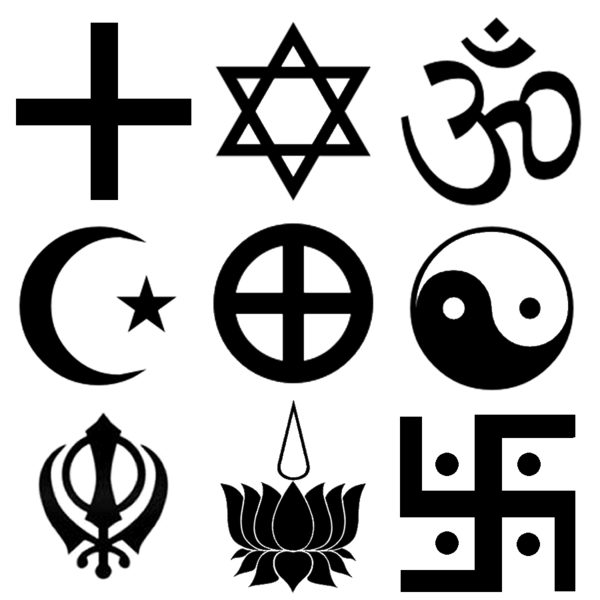In exploring the complex religious landscape of France, it is paramount to delve into its historical roots and contemporary realities. The historical embrace of Catholicism profoundly influences the French identity, yet a notable shift toward secularism has emerged over the past century. This transformation not only reflects changing attitudes toward religion but also reveals the intricate relationship between individual belief systems and societal constructs.
Historically, France is often characterized as a bastion of Catholicism. The establishment of the Gallican Church set the groundwork for a unique iteration of Catholic governance, intertwining religious authority with the French state. As the heart of the Catholic Church in Western Europe, France’s religious fervor was evident in its majestic cathedrals, elaborate feasts, and theological discourses. The powerful influence of the clergy swayed the populace, embedding Catholic values within the legal and cultural frameworks of the nation.
However, the seismic shifts brought about by the French Revolution radically redefined the landscape. Revolutionaries sought to dismantle the alliance between church and state, catalyzing the secularization of French society. The establishment of the 1905 law on the separation of church and state was a pivotal moment, marking an official acknowledgment that faith should reside in the private sphere, distinct from political machinations. This separation heralded a new era, allowing the burgeoning concept of secularism—laïcité—to flourish.
Laïcité, a term deeply embedded in French governance and culture, advocates for a neutral state that does not endorse any religion. This principle aims to create a society where individuals are free to practice their beliefs without interference or favoritism from government structures. The implications of such a stance are profound. In classrooms, public spaces, and government institutions, the symbols of religion are often relegated to the background, underscoring a collective commitment to neutrality.
Yet, beneath this seemingly homogeneous landscape lies a tapestry of diverse beliefs and the individual journeys of faith. Despite laïcité’s stronghold, France remains home to a myriad of religious identities. Statistics indicate that approximately 50% of the French population identify as Catholic. However, the practice of faith often reflects a more cultural affiliation than a strictly devotional commitment. Baptisms, weddings, and other rites of passage may occur within a church, but they do not always signify a deep-seated religious conviction.
Moreover, the rise of religious pluralism cannot be overlooked. Islam, Judaism, Protestantism, and other faiths contribute to the vibrant religious mosaic of France. The Muslim community, in particular, is one of the largest in Europe, leading to dynamic dialogues around belief, identity, and societal integration. Interfaith relations emerge as pivotal discussions in contemporary France, highlighting the nuances of coexistence in an ever-diversifying society.
In spite of this pluralism, the specter of secularism casts long shadows upon the practices of various religions, raising questions about the authenticity and visibility of faith in public life. The 2010 burqa ban, aimed at prohibiting the wearing of full-face veils in public spaces, serves as a case in point. Advocates argue this ban upholds the principles of secularism, while critics contend it discriminates against Muslim women exercising their right to express their faith. Such debates surface essential questions: What does it mean to be truly free in one’s belief? Where lies the balance between public order and personal expression?
Additionally, the resurgence of interest in spirituality has emerged, particularly among younger generations. This phenomenon illustrates a growing curiosity toward the existential and the metaphysical—challenging traditional structures while still seeking deeper meaning in life. Engagements with various philosophies and practices, such as meditation and mindfulness, demonstrate a collective yearning for connection, often transcending the confines of institutional religion.
Understanding the French perspective on faith necessitates recognizing the historical contexts that shaped it. As a nation that has oscillated between fervent religious devotion and staunch secularism, France serves as a microcosm of the broader dialogue on religion in the contemporary world. It raises significant inquiries into how societies navigate belief, agency, and identity amidst ever-shifting paradigms.
In conclusion, the question, “What religion are the French?” prompts a multifaceted examination of faith and secularism. While Catholicism undeniably holds a prominent place in the historical narrative, the contemporary landscape reveals an intricate dance of beliefs, ideologies, and cultural practices. The interplay of tradition and modernity underscores the ongoing negotiation between the sacred and the secular; a tension that profoundly influences the fabric of French society. In this era of globalization, the exploration of these dynamics not only piques curiosity but also beckons us to reflect on our own beliefs and practices within an increasingly interconnected world.



